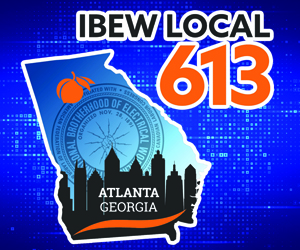The city of Atlanta and the Georgia Dome drew a big crowd for the SEC Championship game earlier this month. However, when Alabama and Florida left town, so did a lot of the money brought in by the conference title game. Nearly all proceeds from ticket sales went back to SEC headquarters in Birmingham. That won’t be the case following Thursday night’s Chick-fil-A Bowl. A large portion of the ticket revenue from the matchup between Tennessee and Virginia Tech will stay right here, with a significant amount of it going to charity.
That is one of the reasons the Chick-fil-A Bowl means more to the city that the SEC game.
More than $1.2 million will go to charities and scholarships from this year’s game, according to bowl officials. Still more will go to scholarship endowments for the participating schools. There is also the economic impact to the local hotels, restaurants and tourist attractions at a time, between Christmas and New Year’s, when visitor traffic is typically down.
“The measure of long-term economic impact is $3-to-$4 million more for the bowl game [than the SEC game],” said Matt Garvey, vice president of communications for the Chick-fil-A Bowl, who estimated the overall economic impact of the game at $33 million, including $1.35 million in direct tax revenue.
That infusion comes at a welcome time. It’s been a tough year for Atlanta’s hospitality industry.
“When you’re bringing in fans from outside the metro Atlanta region, you’re bringing in buying power that would not have been here otherwise,” said Roger Tutterow, professor of economics at Mercer University. “What it does do is, it does pump a lot of buying power into the hospitality industry. It does bring a lot of cash into Atlanta.”
In one respect, Atlanta is lucky, said Andrew Zimbalist, economics professor at Smith College in Massachusetts. In a city such as Miami, most bowl-seekers would simply be filling up hotel rooms that otherwise would be occupied by golfers, fishermen and sun-chasers.
In Atlanta, however, the bowl-goers will mostly come from out of town, spending money that otherwise wouldn’t have been spent here if not for one football game.
“Most of that money will be new to the Atlanta market,” Zimbalist predicted.
But in the big picture, Zimbalist is not as impressed. In a market this size, the game and its spillover effects will give only a small boost to the local economy, he said.
“Over the course of the year, it’s going to have not a huge impact at all,” he said.
Perhaps, but not all assets are measured by one big cash register. One of the tangible yet little known benefits of the game is the Play It Smart program. At a cost of $180,000 annually, paid for by proceeds from the bowl, an academic coach has been placed in each of the nine Atlanta city high schools to work with the school’s football student-athletes.
A national program, Play It Smart aims to keep the students in school, improve grade-point averages, improve college entrance exam scores and get the students into colleges and universities.
“We don’t care if they play college football, just as long as they graduate high school,” said Chick-fil-A Bowl president and CEO Gary Stokan. “Graduation rates have skyrocketed on the teams.”
The Chick-fil-A Bowl is the only private entity that funds a Play It Smart program for an entire school system, according to the the officials.
Proceeds from the bowl game also go to create a $100,000 scholarship fund at the participating schools. The program, begun in 2006 with Georgia and Virginia Tech, allows the schools to aid student-athletes.
The bowl committee would like to eventually see every school in the ACC and SEC with such an endowment after appearing in the bowl game. Tennessee will be the seventh school to receive the award. Virginia Tech will be receiving its second endowment, following its 2006 appearance.
Proceeds from the bowl game also benefit several other local charities, including Chick-fil-A’s WinShape Foundation ($226,000) and Georgia’s Lions Club ($50,000).






















































